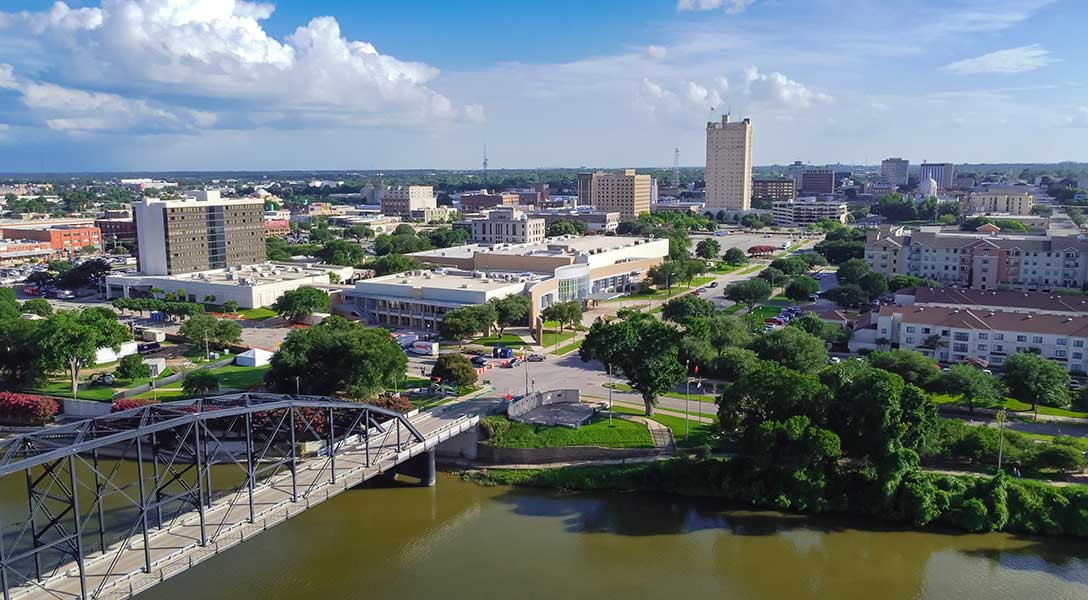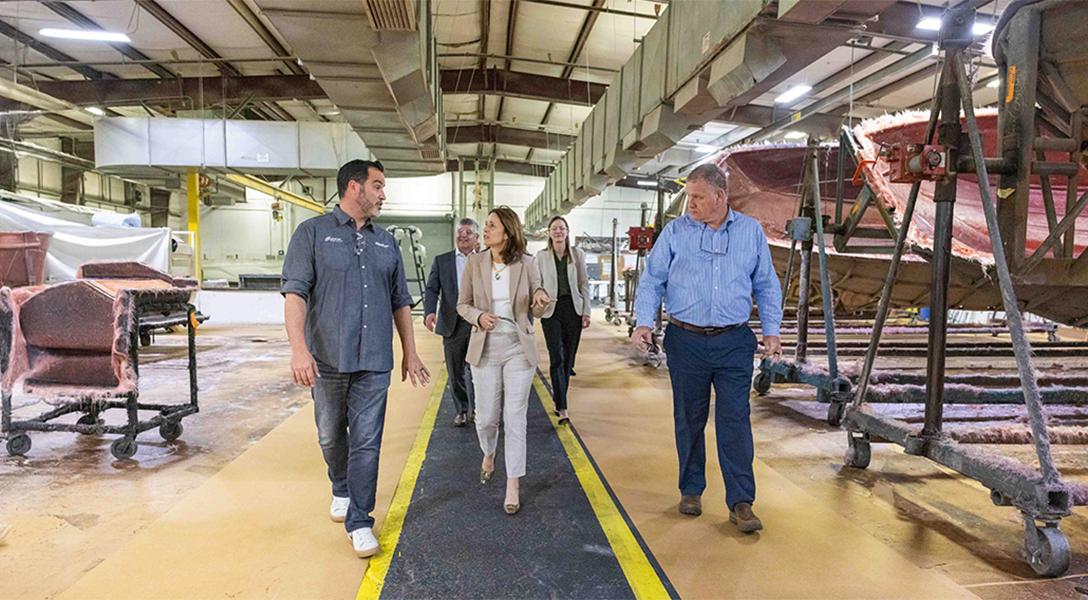
In Abilene, Big Country success depends on small-town community
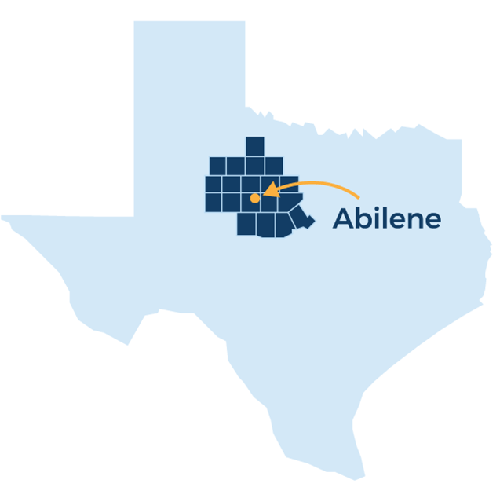
A willingness to share resources has long served the people of Abilene well. Whether it’s attracting new industries such as manufacturing plants and technology centers or facing challenges like rising demand for water, a cooperative spirit has kept the region thriving. Abilene anchors a 19-county rural region dubbed “The Big Country” by early pioneers.
On a recent trip to the area, Dallas Fed President Lorie Logan heard from community leaders and industry executives in banking, manufacturing, aerospace, agriculture and more. A consistent theme in the conversations was community collaboration. During a banking roundtable discussion, a community leader said: “Seeing people work through challenges is what makes Abilene great.”
Abilene leads off President Logan’s 2025 Listening Tour
The visit marked President Logan’s first trip to Abilene and kicked off her 2025 360 Listening Tour, a series of trips focused on engaging business and community leaders across the Eleventh Federal Reserve District to gain real-time insight into the state of the regional economy. She takes information about local economic and financial conditions back to Washington, where she participates in Federal Open Market Committee monetary policy discussions.
This year will also mark President Logan’s first visits to Galveston and Waco, along with repeat visits to El Paso, Houston and San Antonio.



Left to right: Dallas Fed President Lorie Logan met with community, business and academic leaders in Abilene. Senior Vice President Jeff Garrett (center photo, left) and Regional Executive Donald Bowers were among the Dallas Fed contingent that accompanied Logan on the trip.
How the Big Country cultivates skilled labor
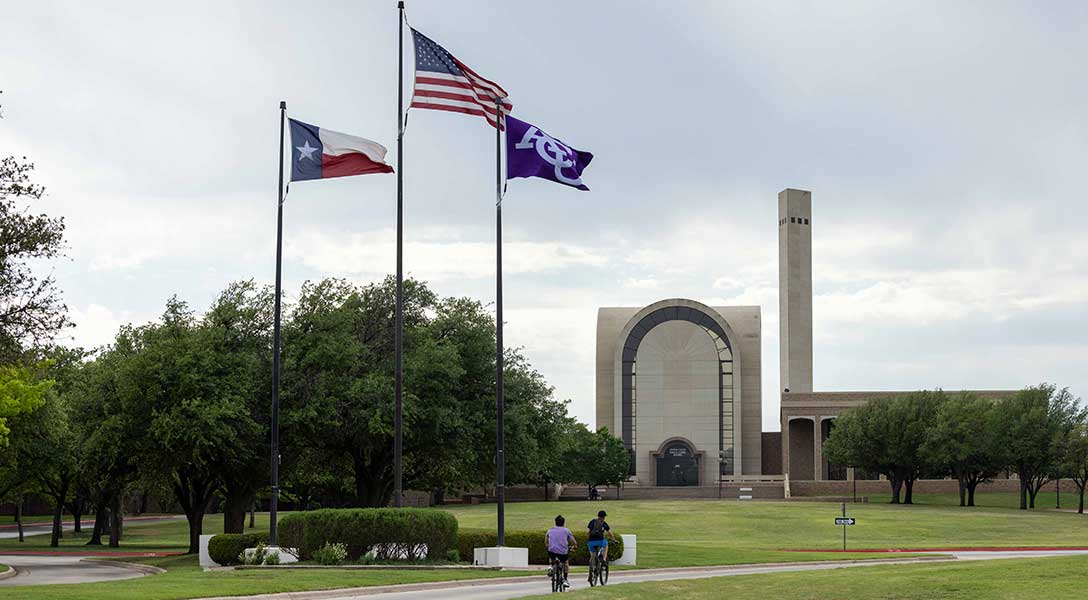
Abilene Christian University is the largest of Abilene’s five higher-education institutions.
The need for highly skilled workers was a theme throughout President Logan’s visit. Abilene, a town of 120,000, is home to five colleges and universities. Those institutions collaborate to equip students with knowledge and skills that are in demand in the region.
- Local colleges and workforce programs partner with private businesses to create programs to develop specific skill sets.
- Higher-education leaders said they collaborate to keep pace with the changing skills demanded by dynamic industries.
- While there’s strong demand for skilled tradespeople, there’s even greater demand for people with technology skills, such as computer programming.
Tige Boats factory tour highlights the Big Country’s manufacturing focus
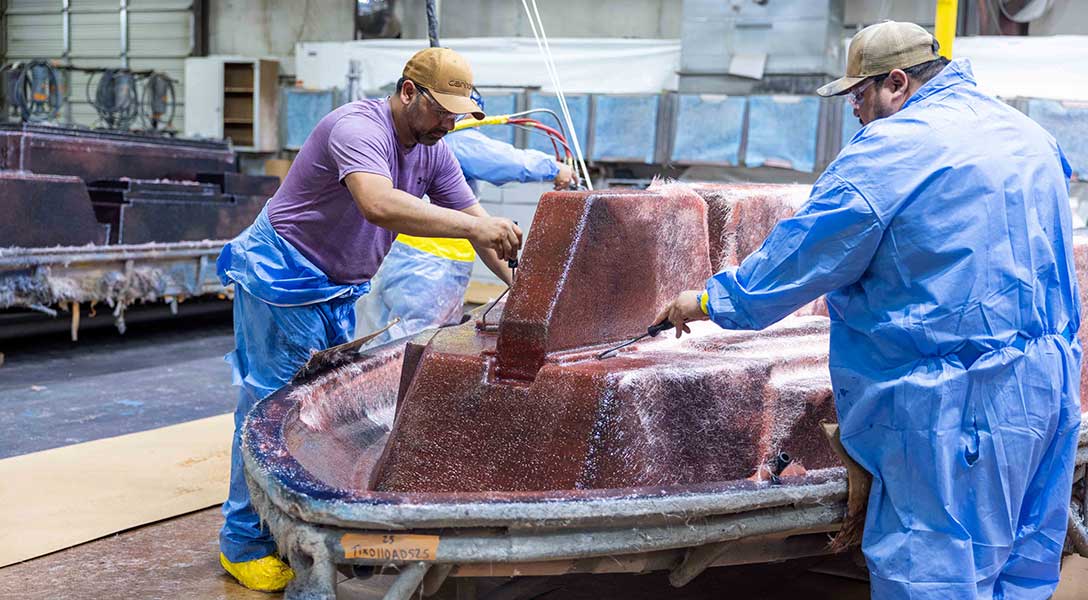
Tige Boats’ 280 employees ship out about 1,000 custom boats per year.
Manufacturing is a key economic driver for the region, and factories need skilled workers. A tour of Tige Boats crystalized the challenges and opportunities regional manufacturers face. Tige makes about 1,000 custom boats per year. In Abilene, the company found a capable workforce and a central location for delivering boats to customers around the world.
Company leaders told President Logan that skilled workers are vital to the business’ success. They said the company has more employees than it currently needs because they’d rather retain skilled employees through downcycles than rebuild the workforce when business picks back up.
‘Most everything can be tied back to agriculture’

Abilene is the hub of the Big Country’s agricultural economy.
Manufacturing, oil and gas and Dyess Air Force Base contribute greatly to the Big Country economy, but agriculture underpins it all. As President Logan and her team prepared to visit Abilene, Senior Business Economist Laila Assanie discussed agriculture and water supply and demand with Steve Estes, Taylor County’s Texas A&M AgriLife Extension Service agent, in a podcast interview.
Estes said farmers rely on rainfall, not irrigation, to sustain the region’s key crops of cotton, wheat and hay. Agriculture doesn’t compete with other Big Country businesses or residents for water, but access to water still is a pressing concern. Estes said residents and businesses have successfully implemented water conservation measures.
